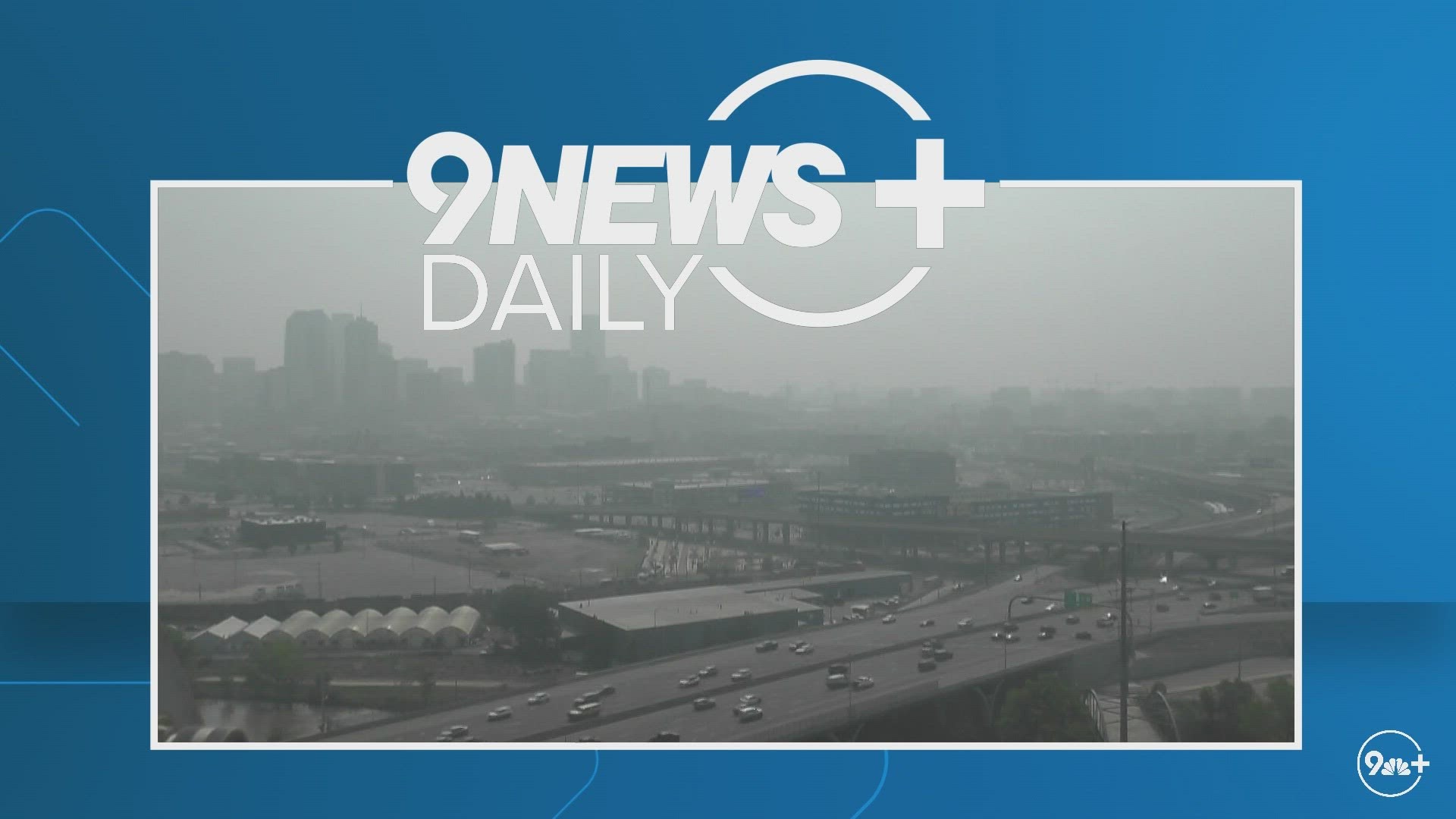COLORADO, USA — If the wildfire smoke drifting into Colorado from western Canada is leaving you coughing or feeling a bit groggy with watery, burning eyes, you're not alone – your pet probably feels the same way.
As an intense swirl of smoke, referred to by some meteorologists as a "smoke cyclone," moves through Colorado on Monday and Tuesday, it brings with it another round of low air quality and dense smoke.
> Video above: Wildfire smoke in Colorado: How long will it stick around?
"The same thing that happens to people happens to pets," said Colleen Duncan, a professor and veterinarian at Colorado State University. "Pay attention to subtle signs. If people are feeling groggy and losing their ability to function, animals are no different, but they can’t tell you that."
Is the smoke bad for pets?
Duncan said humans and animals are more alike than we are different, and encouraged pet owners to check the air quality more frequently – even when there's not a visual cue like smoke.
"Pets can’t tell you they're uncomfortable, so there are things for us to think about as their guardians," Duncan said. "If your pet has an underlying medical condition, or is elderly, they are already at risk."
Duncan said short-nosed dogs, like pugs or bulldogs, are known to be at risk for breathing problems.
"We now know they are at increased risk of respiratory distress, and susceptible to heat," she said. "Air pollution events in hot weather are risk factors for animals that fall into those groups."
Duncan's tips for pet owners to reduce their risk of air pollutants:
- For high-energy dogs, have mental exercises ready for your pet to play with, or work on indoor tricks or training.
- Pay attention to physical activity. Don't train for a marathon or a bike race with your dogs in poor air quality.
- Know how to find air quality information. Ozone is a big concern in Colorado and worse in the afternoon hours.
- Reduce and avoid regional exposure to harmful air. Don't walk or exercise your pets on a busy road with car pollutants. Take walks in the park with trees and greenery to help filter the air quality.
- Allow pets self-selection. Now is not the time to run your dog on a leash while you ride a bike, where your pet can't stop to take a breather if they feel crummy.
"Walk, don't run," Duncan said. "It's about deep breaths. Avoid deep exertion and that's better."
"We have that visual cue when we can’t see the foothills," she said. "The scarier thing is when we are not talking about it – we still have poor air quality. That’s the state's main concern, that we're not aware of pollution levels that are high, but there's no visual cue like smoke."
Just like human athletes, Duncan said animal athletes are sensitive to pollution too.
"We have racehorses at CSU," Duncan said. "Athletes take more deep breaths – in higher pollution, we aren't exercising or training animals in those conditions."
For animals outside all the time – like cattle – air pollution can affect milk production and quality. They can't go inside, but Duncan said there are other ways to protect them.
"All factors raise the risks," Duncan said. "But making sure they have clean water, good nutrition, not stressed in other ways and make sure animals are overall healthy going into weather events."
She pointed out that horses can be sensitive to dust and molds.
"We know when we have an air pollution event we can’t control the air, but we can control the other things that cause more problems to their health, like a dusty pen," she said.
Duncan said as much as the pollutants bug your respiratory health and eyes, those small particles from smoke enter the bloodstream.
"It's important when we think about dust, it can get in the bloodstream. Systemic inflammation is elevated and it affects the heart and brain," Duncan said. "The reality of air pollution is it affects the whole body."
Duncan said the Front Range is plagued with multiple air pollutants and CSU's veterinary school's research is ramping up because it's a concern for animals. She said a veterinary grad student is doing a study now that could help pet owners translate what air quality alerts mean for animals.
SUGGESTED VIDEOS: Animals and Wildlife

